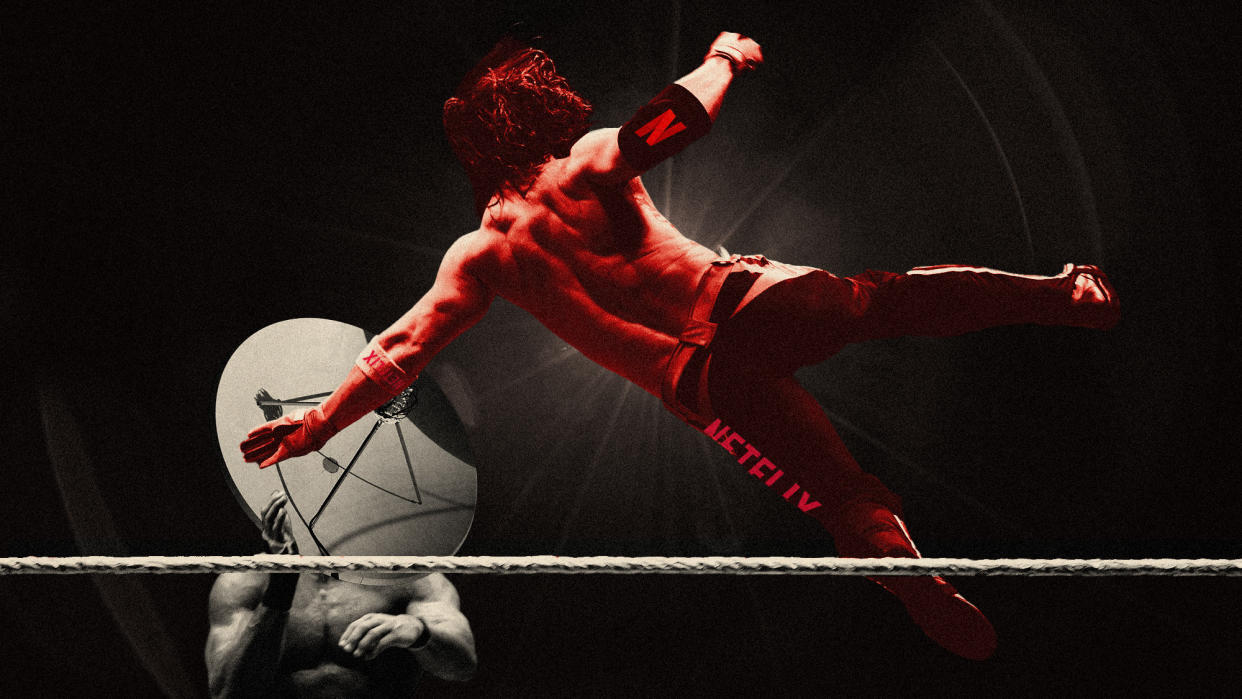Live events on streaming platforms could be cable's death blow

While streaming services have emerged as the preeminent form of television entertainment, one area where they've historically lacked dominance over cable is live events. But this has been changing in recent months and came to a head on Jan. 23, when Netflix announced it had signed a deal with the World Wrestling Entertainment (WWE) to make the streaming service the exclusive home of the wrestling brand's flagship show, "Raw."
The 10-year deal "fundamentally alters and strengthens the media landscape … and brings weekly live appointment viewing to Netflix," Mark Shapiro, president of WWE's holding company, said in a statement. The total value of the deal was not disclosed but is worth at least $5 billion, The New York Times reported.
Netflix noted that this will be the first time "Raw" will ever leave linear television — and comes as several other streaming services have been scrambling to ink their own deals for live events. Given that live programming, particularly live sports, has traditionally been the bread and butter of cable television, could expanded live offerings on streaming services be end-time for cable?
Could the deal change the streaming landscape?
The deal undoubtedly "changes the landscape for live sports media rights deals, at a time when the NBA's televised future is up for grabs," Axios reported. And Netflix's new deal "reminded everyone that it's the undisputed streaming champ," the outlet added.
The deal is also evidence that streaming services are putting more weight than ever behind live events. The WWE had previously signed a licensing deal with Peacock, and there was "a time when the reported $200 million to $250 million a year WWE makes from its Peacock deal was unheard of," The Ringer reported — let alone the nine-figure deal WWE just inked with Netflix. The WWE acquisition "isn't Netflix's first foray into the live streaming space, but it's certainly its biggest so far," the outlet added.
However, while undoubtedly a loss for the cable companies that have been airing "Raw" for 30 years, the deal may not be the final nail in the coffin for cable. This may be especially true when it comes to live sports. Despite the deal, Netflix is reportedly not looking to drastically invest further in sports programming, CNBC reported. Other streaming services may be chomping at the bit to snap up more deals like Netflix, but this may not happen for the foreseeable future.
The numbers also seem to point to a slow burn when it comes to streaming overtaking cable for live events. A survey published earlier this month from Reviews.org found that "over one-third (36%) of Americans still watch sports using a cable or satellite subscription." Just 29% said they watch live events through streaming services. "Viewing habits are changing and streaming is taking over our lives, but for now, cable might still be the most straightforward way to watch live sports," the outlet reported.
What's next for cable?
The "death of cable" has long been mused by the television industry, but there are now "clear signs of the disruption the introduction of streaming and shifting viewing habits has had on the industry," HuffPost reported last year. Many of the major entertainment companies are "walking a fine line trying to maintain their lucrative cable contracts while also strongly positioning themselves" for streaming's takeover, the outlet added.
CNBC asked industry insiders to predict the future of linear television in the next three years, and TV and film producer Peter Chernin summarized, "It will continue to be in decline. It will be crappier. Budgets will get cut." Chernin, however, noted his belief that cable television "will continue to exist."
Former Warner Bros. CEO Ann Sarnoff agreed, telling the outlet that the format "will definitely be around in three years, but the number of subscribers will continue to decline." She added that a large X-factor in the cable battle will be "sports and how big a role streaming services play in sports." This shift seems to have been corroborated by Netflix's move.
There is no question that cable — and the advertising money it generates — is dwindling, and the "revenue generated from the cable industry, while still lucrative, has been tapering off," Forbes reported. Not everyone agrees on cable's death, though, as Kathleen Finch, chairman and CEO of Warner Bros. Discovery's U.S. networks, told CNBC, "Obviously people's habits are changing, but as a business, [cable is] a large, robust, high-margin business."

